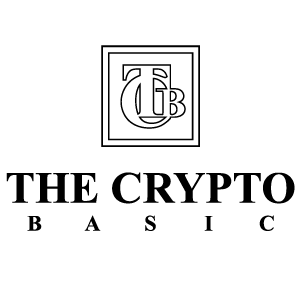Summary Grayscale Bitcoin Cash Trust is a simple investment trust that holds Bitcoin Cash in 'cold' storage. Despite lower transaction costs, BCH has failed to gain significant adoption, trading at roughly the same prices as in 2017. BCHG is currently trading at a 160% premium to NAV. Even if BCH continues to rally, BCHG may not follow, if its premium to NAV narrows. Recently, I have been reviewing the crypto markets and came across the Grayscale Bitcoin Cash Trust (BCHG). BCHG has had a phenomenal run, returning close to 1,000% in the past year, vastly outperforming Bitcoins and its sibling fund, the Grayscale Bitcoin Trust ETF ( GBTC ) (Figure 1). Figure 1 - BCHG vs. BTC and GBTC (Seeking Alpha) Is Bitcoin Cash the hot new 'altcoin' that is poised to outperform Bitcoin going forward, and should investors consider investing in the BCHG? In my opinion, BCHG is an investment vehicle investors should avoid. Not only is Bitcoin Cash, the cryptocurrency underlying BCHG, not living up to its initial hype, but the BCHG trust is trading at an absurd 160% premium to NAV. Even if investors are bullish on the outlook for Bitcoin Cash, they should seek exposure elsewhere. Fund Overview The Grayscale Bitcoin Cash Trust is a simple investment trust designed to hold Bitcoin Cash ( BCH-USD ) offline in 'cold storage' with Coinbase's ( COIN ) custody solutions. BCHG charges a 2.5% management fee and has $140 million in assets under management. What Is Bitcoin Cash Without belaboring the point, Bitcoin Cash ("BCH") is a hard fork of the cryptocurrency, Bitcoin, that was created in 2017 when the developers behind BCH had a different vision than the mainstream supporters of Bitcoin. BCH supporters wanted to create a cryptocurrency with a greater utility in everyday transactions, so they proposed increasing the block size of Bitcoin such that it could process more transactions per second. However, mainstream Bitcoin supporters were not enthusiastic about the idea, since larger block sizes would require more resources to operate nodes. This disagreement in the vision for Bitcoin led to the hard fork of the codebase, creating Bitcoin Cash. Readers interested in learning more about the cryptocurrency's history can refer to various articles online . Bitcoin Cash Failing To Gain Adoption To decide whether the BCHG trust is a good buy, we must first think about the merits of Bitcoin Cash. Will BCH continue to gain adoption, trading volumes, and investor demand? Compared to traditional Bitcoin, BCH is widely considered to be faster and less expensive for transactions. Due to its larger block size, BCH can process over 100 transactions per second, an order of magnitude higher than Bitcoin's 6-8 transactions per second. However, despite its low costs, BCH adoption has been relatively weak, with only ~13k transactions per day on its blockchain (Figure 2). Figure 2 - Bitcoin Cash transactions per day (Bitinfocharts.com) In contrast, Bitcoin still dominates, with close to half a million transactions per day on its blockchain despite its much higher costs (Figure 3). Figure 3 - Bitcoin transactions per day (Bitinfocharts.com) The difference in adoption rate can also be observed by comparing the market capitalization of Bitcoin versus Bitcoin Cash. When the Bitcoin Cash fork occurred in 2017, BCH was trading at approximately $240 while Bitcoin was at $2,700. Fast-forward to today, Bitcoin has increased in value to ~$65,000 while BCH is still fetching only ~$420, so the ratio between the two cryptocurrencies has increased by ~14x. In fact, BCH has fallen out of the top-10 most valuable cryptocurrencies, with a market capitalization of only $8.2 billion, less than the meme-coin Dogecoin (Figure 4). Figure 4 - Top 20 cryptocurrencies by market cap (coinmarketcap.com) BCHG Trades At A Large Premium To NAV Interestingly, while BCH has outperformed Bitcoin in the past year, the outperformance has not been as dramatic as Figure 1 implies. Over the past year, BCH has returned 288% compared to Bitcoin's 148% rally (Figure 5). Figure 5 - BCH vs. BTC, 1 year (Seeking Alpha) So how has BCHG been able to return 1,000% in the past year? The answer has to do with BCHG's premium/discount to net asset value ("NAV"). As BCHG is structured as an investment trust, the creation, and especially redemption, of the trust's units are tightly controlled. This means that the market price of the trust can fluctuate independently of the underlying BCH price. During the crypto bear market in 2022, BCHG's price to NAV reached a low of 0.4x and was approximately 0.8x in June 2023 (Figure 6). However, today, BCHG units are trading at a steep 2.6x P/NAV. Figure 6 - BCHG price to NAV (Author created with data from Grayscale) So a strong rally in BCH prices, combined with BCHG's P/NAV swinging from 0.8x to 2.6x, caused BCHG units to rally close to 1,000% in the past year. Outlook Not As Promising With Large Premium To NAV While BCHG may have looked promising in early 2023 when it was trading at a discount to NAV, the current 160% premium to NAV argues for caution (Figure 7). Figure 7 - BCHG currently fetches 2.6x P/NAV (grayscale.com) Even if BCH were to continue its rally, there is no guarantee that BCHG's share will follow suit. In fact, BCHG shares may even decline in certain scenarios if BCHG investors decide to liquidate their BCHG holdings and/or decide to buy the cryptocurrency directly through a crypto exchange like Coinbase. Return Of The Crypto 'Arbitrage' Trade One possible driver of BCHG's premium-to-NAV and possible future risk is the return of the crypto 'arbitrage' trade involving private placements of Grayscale's investment trusts. Historically , when Grayscale was the only game in town with respect to investment trusts holding cryptocurrencies, its crypto investment trusts like the Grayscale Bitcoin Trust would trade at a large and persistent premium to NAV. Accredited investors could subscribe to private placements of the trusts, whereby they can buy trust units at NAV. The only caveat is that there is typically a hold period of 6-12 months before these investors can sell their newly minted trust units on the secondary markets. As long as Bitcoin prices kept rising and the GBTC stayed at a premium to NAV, it was akin to 'printing money' for these sophisticated investors. For example, they would agree to purchase GBTC units at $3,000 per Bitcoin, with GBTC trading at a 20% premium to NAV. Grayscale would take the investor's money and purchase Bitcoins in the open markets for the trust (and thus supporting Bitcoin prices). At the end of their 6-month hold period, as long as Bitcoin prices stayed relatively stable and the trust's premium to NAV did not collapse, these investors could turn around and sell their GBTC units to retail investors and collect a handsome return for their time. Some cynical traders have even likened the trade to a 'ponzi' scheme. I bring up the crypto 'arbitrage' trade because, since Q3 of 2023, the BCHG has been issuing tens of thousands of units in private placements (Figure 8). Keen-eyed readers will notice that this behavior coincides with the BCHG trust returning to a premium to NAV in Figure above, and could be a sign that these sophisticated accredited investors have been engaging in the crypto 'arbitrage' trade once again using BCHG. Figure 8 - BCHG has been issuing units in private placements (SEC) Retail investors buying the BCHG may become the unwitting 'exit liquidity' for these accredited investors when their hold period expires in the coming months and quarters. Risks Like all cryptocurrency investments, the biggest risk to BCHG is the price of BCH, which is quite volatile. However, the risk in BCHG is compounded by the fact that it is trading at a 160% premium to NAV. Even if investors are bullish on the adoption of BCH over the long run and wish to participate, there are far cheaper ways to gain exposure to BCH via opening a crypto investment account and buying BCH directly. Not only would investors sidestep BCHG's steep premium, but by buying BCH directly, investors will not have to pay BCHG's steep 2.5% per annum management fee. On the flip side, momentum could continue for BCHG, particularly if enough sophisticated investors continue to pour capital into private placements of BCHG units, which can be turned around to support BCH prices and BCHG's premium to NAV. Conclusion I would personally steer clear of the Grayscale Bitcoin Cash Trust. To date, there is no indication that Bitcoin Cash is gaining in popularity and adoption, since the number of transactions on the BCH blockchain remains far below that of Bitcoin despite its supposedly lower transaction costs. Furthermore, the BCHG trust is currently trading at an expensive 160% premium to net asset value. Even if BCH prices rally, there is a risk that BCHG falls, if its premium to NAV narrows. BCHG's recent surge in price may be driven by a crypto 'arbitrage' trade, whereby sophisticated investors buy BCHG units in private placements at NAV and offload them to retail investors after a hold period. The sudden influx of capital to the BCH ecosystem could have caused BCH prices and BCHG's premium to NAV to surge in the short term. However, with the private placement holds likely expiring in the coming months, retail investors buying BCHG now could become unwitting 'exit liquidity' for sophisticated investors. I rate BCHG an avoid (hold) .













